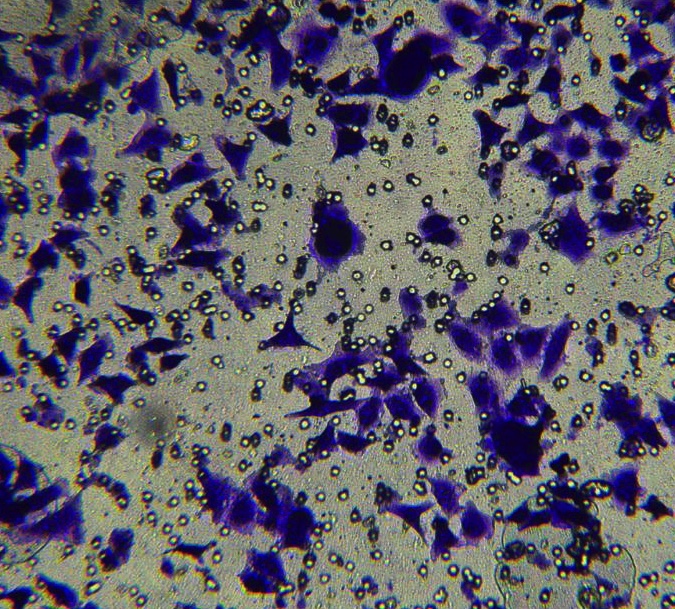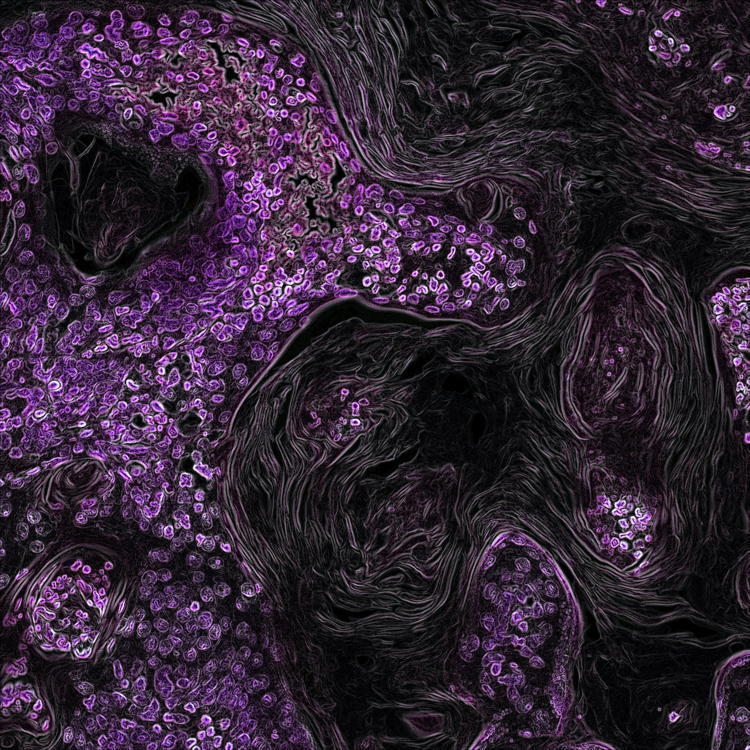Knockdown of ARHGAP30 inhibits ovarian cancer cell proliferation, migration, and invasiveness by suppressing the PI3K/AKT/mTOR signaling pathway

Submitted: 21 January 2023
Accepted: 22 April 2023
Published: 11 May 2023
Accepted: 22 April 2023
Abstract Views: 516
PDF: 328
HTML: 15
HTML: 15
Publisher's note
All claims expressed in this article are solely those of the authors and do not necessarily represent those of their affiliated organizations, or those of the publisher, the editors and the reviewers. Any product that may be evaluated in this article or claim that may be made by its manufacturer is not guaranteed or endorsed by the publisher.
All claims expressed in this article are solely those of the authors and do not necessarily represent those of their affiliated organizations, or those of the publisher, the editors and the reviewers. Any product that may be evaluated in this article or claim that may be made by its manufacturer is not guaranteed or endorsed by the publisher.
Similar Articles
- D. Cabibi, A.G. Giannone, C. Mascarella, C. Guarnotta, M. Castiglia, G. Pantuso, E. Fiorentino, Immunohistochemical/histochemical double staining method in the study of the columnar metaplasia of the oesophagus , European Journal of Histochemistry: Vol. 58 No. 1 (2014)
- L. Ragionieri, M. Botti, F. Gazza, C. Sorteni, R. Chiocchetti, P. Clavenzani, L. Bo, R. Panu, Localization of peripheral autonomic neurons innervating the boar urinary bladder trigone and neurochemical features of the sympathetic component , European Journal of Histochemistry: Vol. 57 No. 2 (2013)
- Simone Carotti, Giuseppe Perrone, Michelina Amato, Umberto Vespasiani Gentilucci, Daniela Righi, Maria Francesconi, Claudio Pellegrini, Francesca Zalfa, Maria Zingariello, Antonio Picardi, Andrea Onetti Muda, Sergio Morini, Reelin expression in human liver of patients with chronic hepatitis C infection , European Journal of Histochemistry: Vol. 61 No. 1 (2017)
- J.H. Song, M.Y. Lee, Y.J. Kim, S.R. Park, J. Kim, S.Y. Ryu, J.Y. Jung, Developmental immunolocalization of the Klotho protein in mouse kidney epithelial cells , European Journal of Histochemistry: Vol. 58 No. 1 (2014)
- M. A. Sandhu, Z. U. Rahman, A. Riaz, S. U. Rahman, I. Javed, N. Ullah, Somatotrophs and lactotrophs: an immunohistochemical study of Gallus domesticus pituitary gland at different stages of induced moult , European Journal of Histochemistry: Vol. 54 No. 2 (2010)
- Letizia Ferroni, Chiara Gardin, Andrea De Pieri, Maria Sambataro, Elena Seganfreddo, Chiara Goretti, Elisabetta Iacopi, Barbara Zavan, Alberto Piaggesi, Treatment of diabetic foot ulcers with Therapeutic Magnetic Resonance (TMR®) improves the quality of granulation tissue , European Journal of Histochemistry: Vol. 61 No. 3 (2017)
- E. Carabajal, N. Massari, M. Croci, D. J. Martinel Lamas, J. P. Prestifilippo, R. M. Bergoc, E. S. Rivera, V. A. Medina, Radioprotective potential of histamine on rat small intestine and uterus , European Journal of Histochemistry: Vol. 56 No. 4 (2012)
- M. Costanzo, B. Cisterna, O. O. Zharskaya, O. V. Zatsepina, M. Biggiogera, Discrete foci containing RNAse A are found in nucleoli of HeLa cells after aging in culture , European Journal of Histochemistry: Vol. 55 No. 2 (2011)
- D. Ami, M. Di Segni, M. Forcella, V. Meraviglia, M. Baccarin, S.M. Doglia, G. Terzoli, Role of water in chromosome spreading and swelling induced by acetic acid treatment: a FTIR spectroscopy study , European Journal of Histochemistry: Vol. 58 No. 1 (2014)
- Jun Lin, Liping Jiang, Kun Guo, Ning Feng, Decreased VEGFA alleviates the symptoms of LPS-induced sepsis in a mouse model by inhibiting glycolysis and thereby regulating the polarization of macrophages , European Journal of Histochemistry: Vol. 67 No. 1 (2023)
<< < 22 23 24 25 26 27 28 29 30 31 > >>
You may also start an advanced similarity search for this article.

 https://doi.org/10.4081/ejh.2023.3653
https://doi.org/10.4081/ejh.2023.3653











